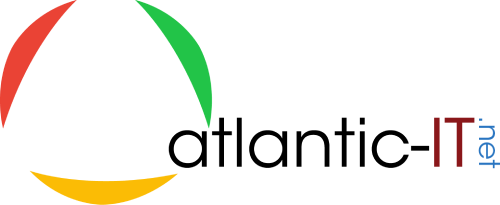
Does Coronavirus Bring New Cybersecurity Threats to the Table?
Does Coronavirus Bring New Cybersecurity Threats to the Table?
The Simplest Answer? Absolutely… Cybercriminals Are Taking Advantage of the Crisis. Here’s What You Need to Know About Staying Safe While Working Remotely…
As coronavirus cases continue to rise around the world, it’s a difficult time for many – balancing social distancing with their obligations, such as work, childcare, and overall life. Former Chicago Mayor Rahm Emanual is well known for the following quote…
“Never allow a good crisis to go to waste.”
Cybercriminals certainly aren’t allowing this crisis to go to waste as they continue to target businesses, individuals, and even major health agencies. Flavio Aggio, Chief Information Security Officer for The World Health Organization (WHO), expressed…
“There has been a big increase in targeting of the WHO and other cybersecurity incidents. There are no hard numbers, but such compromise attempts against us and the use of WHO impersonations to target others have more than doubled.”
Why Are Cybercriminals Ramping Up Their Efforts?
There are two main reasons cybercriminals are using this crisis as a way to ramp up their efforts:
- The majority of businesses are forced to embrace a remote workforce in a short period with limited knowledge of how to access information securely.
- The majority of individuals are facing significant stress and concern regarding the outbreak – meaning they’re leaving their guards down more than usual.
For most of us, the most concerning cybersecurity threat has been the rapid increase in malicious phishing attacks taking advantage of insecurities surrounding the outbreak. Cybercriminals will send malicious phishing emails that:
- Claim to be from WHO or another healthcare agency or provider offering information on local cases, vaccine information, etc.
- Claim to be from the government offering information or the ability to sign up for federal or state-wide financial assistance programs.
- Claim to be from the victim’s workplace outlining a disease management policy, remote work policy or something similar.
The simplest way to respond? Don’t click on any links or open any attachments found within emails at this time. If you are expecting an email from your workplace, it’s a good idea to give them still a call and verify before clicking or opening anything. If you want information about coronavirus, visit the WHO or CDC’s websites directly as they will keep the public updated there. The CDC, in particular, includes the most current information, such as:
- Symptoms
- Prevention and treatment
- Cases
- Information for communities, schools, and businesses
- Travel
- And much more
Aside From Phishing Attacks, What Other Threats Have Increased?
Naturally, phishing attacks are the most concerning threat brought about due to the rapid spread of coronavirus. But there are a couple of additional risks to keep in mind:
- Website domains related to the virus and/or offering information that contains malicious downloads in them.
- Phony remote access tools that contain malicious downloads being distributed to employees working from home.
What Every Business Professional Needs to Know to Stay Safe…
Unfortunately, embracing a remote workforce typically means less security. This is simply due to the lack of enterprise-grade security measures, alongside the fact that employees are accessing sensitive information using their own devices at a sensitive time when everyone is a little bit uncertain. Here are our recommendations to keep you safe:
- Use a virtual private network (VPN) to create a secure, encrypted tunnel for employees to connect to the network. If possible, make use of virtual desktop infrastructure (VDI) to give employees access to their work desktops.
- There’s no miracle cure for coronavirus so don’t be fooled into thinking there is. If someone sends you an email with a miracle cure, ignore it and hit delete. It’s more than likely malware of some form.
- Use two-factor authentication with any cloud-based tools or remote access solutions that offer the capability. This will keep you significantly more safe against unauthorized access.
- Never wire transfer money to someone who asks for money via email or phone, even if they say they’re a family member or friend that’s sick with coronavirus. If they claim to be someone you know, hang up and contact that person directly to verify.
- Don’t provide sensitive information via email and instead, use a secure file sharing service. Microsoft, Google, and other tech firms or governmental agencies will never ask for confidential information via phone or email.
We’ll get through this. Contact Atlantic-IT for assistance with staying safe while working remotely. Call 877-936-3328 now.





